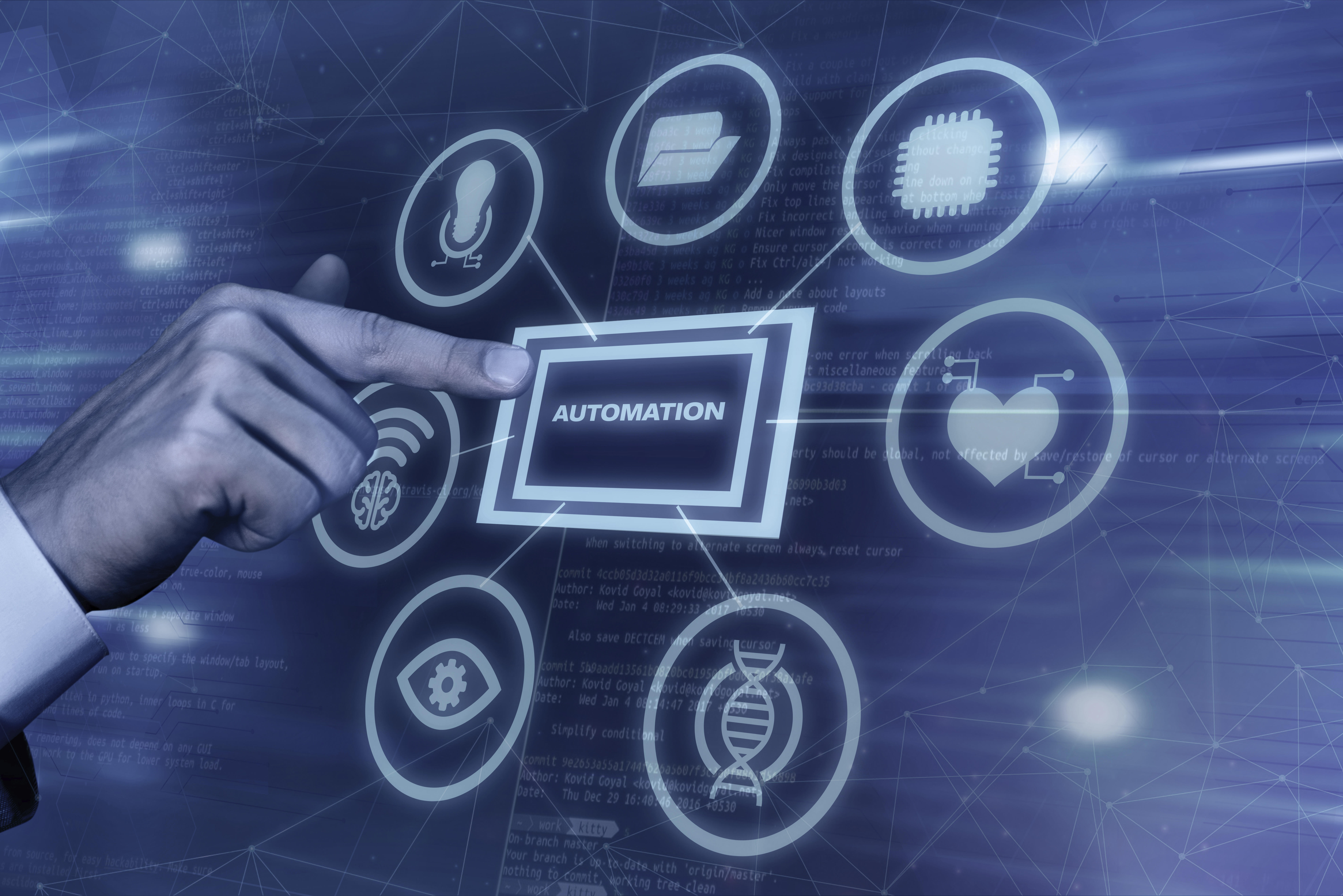Artificial Intelligence and Customer Service: Trends to Watch in 2025
What is Artificial Intelligence in Customer Service?
Artificial Intelligence (AI) is revolutionizing the customer service industry by significantly enhancing efficiency, personalization, and accessibility. From intelligent chatbots that handle common queries to virtual assistants that guide users through complex processes, AI technologies are transforming how businesses interact with customers. These tools are designed to respond instantly, reduce wait times, and maintain consistent service quality around the clock. As a result, customers benefit from faster resolutions, while businesses gain the ability to scale their support systems without proportionally increasing their workforce.
Beyond immediate customer interactions, AI is also powering predictive analytics that help businesses understand customer behaviour and anticipate needs. By analysing historical data, AI can uncover patterns and preferences that allow companies to offer more personalized and proactive support. This leads to improved customer satisfaction and loyalty. Additionally, automating repetitive tasks frees human agents to focus on more complex and meaningful interactions, boosting overall productivity.
How is AI Transforming Customer Service Industries Worldwide
AI is transforming industries by reshaping how businesses interact with their customers. Companies are using AI-powered tools to streamline customer support across various channels, from live chat to voice assistants. This technology allows for faster response times, with AI-powered systems capable of handling multiple queries simultaneously. For example, AI-driven chatbots can resolve common customer issues without human intervention, providing immediate assistance. Additionally, AI’s ability to analyse customer data helps businesses better understand consumer behaviour and anticipate customer needs, leading to more proactive service.
AI’s impact extends beyond large corporations; small and medium-sized enterprises (SMEs) are also tapping into this technology to enhance their customer service offerings. The use of artificial intelligence and customer service innovations allows businesses of all sizes to remain competitive in an ever-evolving market.
Importance of Staying Updated on Trends for 2025
As AI continues to evolve, staying updated on the latest trends in customer service is crucial for businesses that want to maintain a competitive edge. By 2025, advancements in AI will further transform how companies interact with their customers, making it essential for businesses to adopt AI-driven strategies early. Understanding upcoming trends will help companies anticipate changes, prepare for new technologies, and ensure they are delivering the best customer experience possible.
How Can AI and Customer Service Provide Key Benefits?
One of the most significant benefits of AI in customer service is the dramatic improvement in efficiency and response speed. AI-powered tools like chatbots and automated systems can handle multiple customer inquiries simultaneously without compromising on quality. This automation reduces the time customers spend waiting for assistance, ensuring quicker resolution of issues. As a result, businesses can deliver faster service, increasing customer satisfaction and optimizing operational workflows.
Cost Savings for Businesses
AI can significantly reduce the cost of customer service operations. By automating repetitive tasks and inquiries, businesses can minimize the need for large customer service teams, leading to reduced staffing costs. Additionally, AI can lower the burden on human agents, allowing them to focus on more complex issues that require human intervention. As AI technology continues to improve, businesses will experience even greater cost savings without sacrificing the quality of service.
Enhanced Customer Experience (CX)
AI enhances the overall customer experience by providing personalized and accurate solutions. Through advanced algorithms and data analytics, AI can predict customer preferences, offer tailored recommendations, and respond based on previous interactions. This personalization fosters a deeper connection with customers, making them feel valued and understood. AI-driven systems can also maintain consistency in service quality, ensuring customers receive the same level of attention and support every time they engage.
24/7 Support Availability
Another key benefit of AI in customer service is the ability to provide round-the-clock support. Unlike traditional customer service models that rely on human agents working in shifts, AI systems are available 24/7. Customers can reach out for assistance at any time of the day or night, regardless of their time zone. This ensures that businesses can meet the needs of a global customer base without delays or interruptions, creating a seamless customer experience.
By embracing ai and customer service innovations, companies can achieve significant improvements in efficiency, cost-effectiveness, and customer satisfaction.
How are AI-Powered Chatbots and Virtual Assistants Shaping Customer Service in 2025?
AI-driven chatbots have become a fundamental part of customer service, offering automated solutions to handle customer inquiries. These chatbots are designed to simulate human conversation using Natural Language Processing (NLP) to understand and respond to text or voice inputs. They can answer common questions, provide product recommendations, process transactions, and even troubleshoot technical issues. By integrating machine learning, AI-powered chatbots continuously improve their performance by learning from past interactions, enabling them to provide more accurate and personalized responses over time.
Predictions for Chatbot Evolution in 2025
By 2025, we expect AI-powered chatbots to evolve into highly sophisticated systems that can handle more complex customer queries and interact seamlessly across various platforms. With advancements in AI, chatbots will have a deeper understanding of context, emotions, and customer intent. This will enable them to deliver more personalized, human-like experiences. AI chatbots are likely to become more integrated with other technologies, such as voice recognition, and will be able to engage in multi-turn conversations with customers, making interactions feel more natural.
Examples of Successful AI Implementations
Several companies have already embraced AI-powered chatbots to improve customer service, and their success stories highlight the potential of this technology. For instance, companies like Bank of America have implemented AI chatbots like Erica, which helps customers manage their finances, answer questions, and provide personalized advice. Another example is H&M, which uses a chatbot to assist customers in finding outfits based on their preferences and sizes. These successful implementations showcase the versatility and effectiveness of AI-driven chatbots in delivering exceptional customer experiences.
How Does AI Provide Personalized Customer Interactions?
AI has the ability to transform customer service by delivering highly personalized interactions. Through machine learning algorithms, AI can analyse vast amounts of data, allowing businesses to understand individual customer preferences, behaviours, and past interactions. This data helps AI systems create tailored experiences that meet each customer's unique needs. For example, AI-powered virtual assistants can recommend products based on previous purchases or suggest content that aligns with the customer’s interests. This personalized approach makes customers feel valued and understood, increasing their overall satisfaction with the brand.
Use of Data Analytics to Predict Customer Needs
One of the key benefits of AI in customer service is its ability to predict future customer needs. By leveraging data analytics, AI systems can analyse customer behaviour patterns, purchasing habits, and even sentiment from previous interactions. This allows businesses to proactively address customer needs before they arise. For instance, if a customer frequently buys a certain product, AI can alert them about related products or promotions, ensuring they never miss an opportunity. Furthermore, predictive analytics help businesses anticipate customer concerns, making interactions smoother and more efficient.
Benefits for Customer Loyalty and Satisfaction
AI-driven personalization has a significant impact on customer loyalty and satisfaction. When customers receive personalized recommendations, tailored offers, and responses that align with their preferences, they are more likely to remain loyal to a brand. This personal touch fosters a deeper emotional connection with the company, leading to increased retention rates and positive word-of-mouth referrals. Additionally, by offering seamless, relevant experiences, businesses can create a sense of trust and reliability, encouraging repeat customers.
By embracing ai and customer service technologies, businesses can not only improve customer interactions but also enhance loyalty and satisfaction, building long-lasting relationships with their clientele.
How is AI Automating Repetitive Tasks in Customer Support?
One of the primary ways AI is transforming customer support is through the automation of repetitive tasks. Tasks like answering frequently asked questions (FAQs), processing basic service requests, and troubleshooting common issues can all be handled by AI-powered systems like chatbots and virtual assistants. This automation frees up customer service agents to focus on more complex and specialized issues that require human expertise. For example, a chatbot can quickly resolve password reset requests or provide tracking information, reducing the need for human intervention. As a result, AI is helping businesses scale their customer support without increasing their workforce.
Streamlining Service Workflows
AI is also playing a crucial role in streamlining customer service workflows. By integrating AI with existing customer service systems, businesses can ensure that all service requests are routed to the appropriate channels quickly and efficiently. AI can prioritize tickets based on urgency, manage customer queues, and even assign tasks to the right agents based on their skill set or availability. This automation reduces the time agents spend on administrative tasks, allowing them to focus on delivering better service.
Reducing Human Error and Workload
AI helps reduce human error and the overall workload for customer service teams. Since AI systems follow predefined rules and algorithms, the chances of mistakes due to human oversight are minimized. Furthermore, by automating mundane tasks, AI alleviates the burden on human agents, preventing burnout and enhancing job satisfaction. When employees are relieved of repetitive duties, they can invest more energy into solving complex problems and providing creative solutions, which ultimately benefits both the employees and customers.
Incorporating AI into customer service operations allows businesses to improve productivity, reduce costs, and deliver a higher quality of support, ultimately enhancing the customer experience.
How Can AI Enhance Customer Service Analytics?
AI is revolutionizing how businesses approach customer service analytics by enabling more accurate and deeper insights into customer interactions. Through the use of machine learning algorithms and data processing capabilities, AI can sift through vast amounts of customer data, identifying patterns and trends that may otherwise go unnoticed. This allows businesses to gain a clearer understanding of customer behaviour, preferences, and pain points. With AI, companies can shift from reactive to proactive service strategies, addressing issues before they escalate and improving overall service delivery.
Real-Time Insights and Predictive Analytics
One of the key benefits of AI in customer service analytics is the ability to provide real-time insights. AI systems can continuously monitor and analyse customer interactions across various channels, providing businesses with up-to-the-minute data. This enables quicker response times and more efficient handling of customer inquiries. Furthermore, predictive analytics powered by AI allows businesses to forecast future customer needs and behaviours. By analysing historical data, AI can predict when customers are likely to reach out for support, enabling companies to prepare in advance and deliver a more personalized service experience.
Improving Decision-Making with AI-Generated Data
AI-generated data plays a pivotal role in improving decision-making within customer service departments. By processing large volumes of customer data, AI systems can identify key performance indicators (KPIs) and generate actionable insights that guide strategic decisions. For instance, AI can pinpoint areas where customer satisfaction is lacking or where resources are being over-extended, allowing businesses to make data-driven adjustments. With more accurate data at their fingertips, customer service managers can allocate resources more effectively, train employees based on specific needs, and refine overall service strategies.
By integrating AI and customer service analytics, businesses can enhance their service delivery, make more informed decisions, and ultimately improve customer satisfaction and loyalty.
How is Voice AI Transforming Customer Service Interactions?
Voice AI technology has become a transformative force in customer service, revolutionizing the way businesses interact with customers. Virtual assistants like Amazon's Alexa, Google Assistant, and Apple's Siri have already demonstrated the power of voice recognition in consumer technology, and now, businesses are integrating similar capabilities into their customer support systems. Voice AI can handle routine customer inquiries, process orders, and provide real-time support without the need for human intervention. This innovation allows customers to communicate with businesses using natural language, creating a more seamless and intuitive experience. With AI's ability to understand and respond to voice commands, companies can offer more accessible and efficient support for their customers.
Future Voice-Based Customer Service Trends
As AI and voice recognition technology continue to evolve, we can expect several key trends to shape the future of voice-based customer service. By 2025, voice assistants will become even more capable of handling complex tasks, such as troubleshooting technical issues, offering personalized recommendations, and understanding multiple languages or dialects. Voice assistants will also become more contextually aware, allowing them to engage in multi-turn conversations with customers and remember previous interactions for a more personalized experience. Additionally, integration with other AI-driven tools, such as chatbots and data analytics, will allow voice assistants to offer a more holistic service experience, seamlessly switching between voice and text-based communication as needed.
How Businesses Are Integrating AI Voice Assistants
Businesses across industries are increasingly adopting AI voice assistants to enhance their customer service offerings. Companies in sectors like retail, banking, and telecommunications are leveraging voice assistants to manage customer inquiries, process transactions, and provide support at scale. For example, banks are using voice AI to assist customers with account inquiries, transaction histories, and even setting up new services, all through simple voice commands. By integrating AI voice assistants into their customer service strategies, businesses can improve response times, reduce costs, and provide a more accessible customer experience.
Embracing artificial intelligence and customer service through voice AI technology not only improves customer interactions but also sets businesses on the path to delivering future-ready, efficient support systems.
What are the Ethical Considerations in AI-Driven Customer Service?
One of the primary ethical considerations in AI-driven customer service is ensuring data privacy and security. AI systems often rely on large volumes of customer data, including personal information, purchase history, and interaction details, to deliver personalized experiences. This raises concerns about how this sensitive information is stored, used, and protected. Businesses must ensure that AI systems comply with data protection regulations, such as GDPR, to avoid potential breaches and misuse of personal data. Companies need to implement robust cybersecurity measures and clear data usage policies to protect customers' privacy and build trust in their AI systems.
Ensuring Transparency and Fairness in AI Interactions
Another critical ethical issue is ensuring transparency and fairness in AI interactions. AI algorithms are designed to make decisions based on data, but these systems can sometimes produce biased outcomes if the data they are trained on is flawed or unrepresentative. For example, if an AI system is trained on data that underrepresents certain demographics, it may unintentionally offer subpar service to these groups. To address this, companies must ensure that their AI models are tested and validated for fairness, inclusivity, and accuracy. Additionally, businesses should be transparent about how their AI systems make decisions and provide clear explanations to customers when needed, ensuring they feel informed and confident in the service they receive.
Addressing Customer Trust Issues
Building customer trust is essential when incorporating AI into customer service. Many customers may feel uneasy about interacting with AI-driven systems, especially if they are unsure how their personal data is being used or how decisions are being made. To address these trust issues, businesses should prioritize clear communication with customers, explaining how AI technologies enhance service and protect data. Offering customers, the option to speak with human agents when needed also helps to maintain a sense of control. By addressing these concerns and demonstrating responsible AI use, businesses can foster customer confidence in their AI-powered customer service.
By considering artificial intelligence and customer service ethical implications, businesses can create more secure, transparent, and trustworthy experiences for their customers, ultimately benefiting both the company and its clientele.
Conclusion
As we move deeper into the digital age, businesses must be proactive in embracing the future of artificial intelligence and customer service. Staying informed about the latest trends, investing in AI and customer service tools, and training staff to work alongside intelligent systems will be essential for long-term success. For customer service professionals, this means developing a strong understanding of AI capabilities and remaining adaptable. Companies that strategically implement these technologies will not only improve efficiency but also deliver more personalized, responsive, and satisfying customer experiences. Embracing innovation today ensures a competitive edge in tomorrow’s evolving service landscape.








